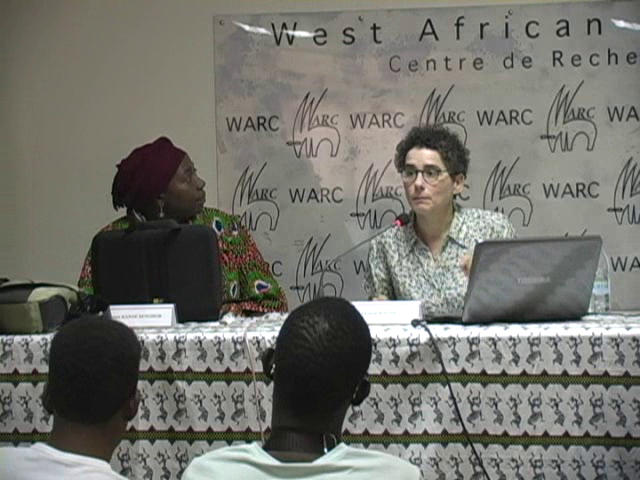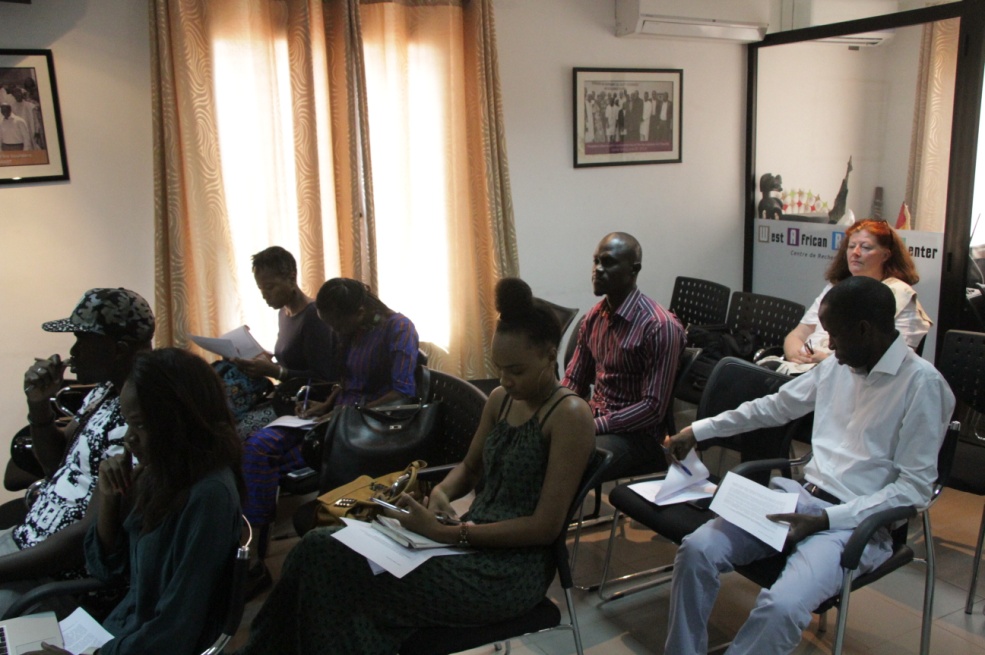

Join us in congratulating the Spring 2018 WARC Travel Grant Awardees! We are very excited about this round’s grantees seeking to tackle issues throughout West Africa, from clean water to food security, climate change, and disease prevention.
Hougnigbo Bertrand Akokponhoue (Université d’Abomey Calavi, Bénin), “ Utilisation de la Télédétection, des SIG et des méthodes géophysiques pour la recherche de l’eau dans les aquifères discontinus du socle cristallin du Bénin : cas du Département de la Donga (Nord-ouest du Bénin) ”
Ivo Kashimana (University of Lagos, Nigeria), “Impacts of Land Use Changes in Lower Black Volta (Ghana) and Lower Benue (Nigeria) River Basins: a climate change mitigation approach for food security”
Dambre Koungbanane (Université Félix Houphouet-Boigny, Côte d’Ivoire), “ Etude du risque d’inondation dans le contexte de changement climatique dans le bassin de l’Oti dans la Région des Savanes au Togo ”
Marguerite Nikiema (Université Ouaga I Professeur Joseph Ki-Zerbo, Burkina Faso), “Caractérisations phénotypique et génotypique des souches de Salmonella non-Typhiques (SNT) d’origines alimentaire et humaine au Burkina Faso: Contribution au développement de nouveaux vaccins.”
Funding for the WARC Travel Grant Program is provided by the Bureau of Educational and Cultural Affairs of the US Department of State through a grant from the Council of American Overseas Research Centers.
Tu Seras Docteur.e Mon Enfant
LES AUTEURS
Mariama Diallo, Doctorante à l’ EHESS Marseille.
| L’ouvrage est disponible à la vente en ligne et dans la boutique des éditions de l’ Harmattan à Dakar. Il sera également en vente au tarif exceptionnel de 10 000 FCFA le 21 juin lors de sa présentation. |
An Associate Professor of Art History at the University of North Carolina Chapel Hill, Dr Victoria Rovine conducted this presentation at the West African Research Center on Wednesday, June 7, 2017. The session was moderated by a young Senegalese filmmaker and design specialist, Mrs Fatou Kande Senghor. Fatou Kande has been working on style and design and integrates various components in her films. As it turns out, Kande’s teachings are based on the many articles and books written by Professor Rovine that she has read over the years. The two women discovered this hidden and unknown connection while sitting and discussing during and after the presentation.

left to right: Fatou Kandé Senghor and Dr Rovine
Dr Rovine’s presentation and research publications generated a high level of interest among attendees because of the importance of dress in Senegal and West Africa as a whole. It is a particularly intriguing topic because of the colonial origins of a number of materials (wax, fancy) regularly worn by Senegalese and other West African women and so expertly acclimated to the point of passing as local production.
The presentation was followed by lively and insightful conversations between the UNC Chapel Hill faculty member and the audience.

A partial view of the audience